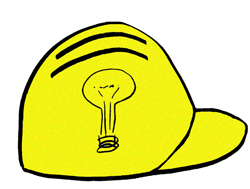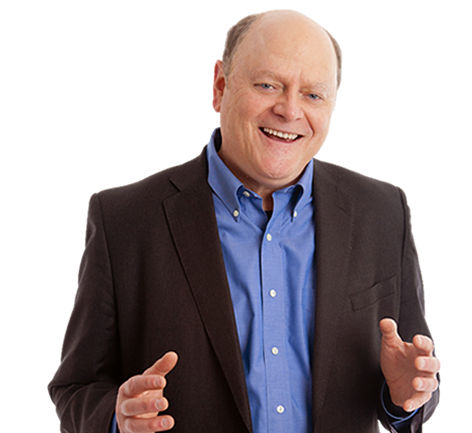 Pressured for Ideas? Here are Seven “Ideation First Aid Kit” emergency tools to get you thinking creatively again.
Pressured for Ideas? Here are Seven “Ideation First Aid Kit” emergency tools to get you thinking creatively again.
Professional creative people often find themselves needing a brilliant idea — and simply not having one. We’ll we’ve all been there, a deadline is looming, you’ve tried this and that, and you know in your heart it’s not there, you don’t have something you can use. Anxiety, frustration, and fear creep into your being, and the harder you try, the worse things get.
Don’t push the panic button, reach for the ideation First Aid Kit and triage your challenge. Here are seven tools for coming up with an idea under pressure:
- Think positive. Even if you’ve been stumped for days, even weeks, start telling yourself that you are going to have a great idea, and start believing it. Take a moment and imagine things working out perfectly and explore in your head, in your mind’s eye, what success might look like, how it might feel. Get into as much sensory detail as you can, how does it taste, smell, feel? Don’t know? Make it up! Your brain tends to follow the instructions you give it, even the non-intentional ones. So if you say to yourself “I am having a great idea about the Wesley account” your brain will give it to you. If you say, I’m stumped, your brain will stay that way. Brainwash yourself! Allow for all possibilities to emerge.
- The next thing to do is relax. Do something physical. Shake the anxiety out of your body and shoulders, pretend you’re Elvis for a few minutes. Stretch, do some yoga, go for a short walk, take some deep breaths. If you have time, do something that gets you out of breath or makes you work hard physically. This will help get you out of your head and return you to a mental space that is more grounded. The key here is to still your mind.
- Try looking at your challenge from a new angle. Pretend you are someone else, even a historical person like Frank Lloyd Wright, or Lincoln, or a fictional character like Miss Jane Marple. How would they look at this challenge, how might they address it? To break through to something fresh you have to think differently, so, why not use another persona to start getting imaginative. How would a child see it? Do anything you can to have fresh eyes, you’ll then have fresh thoughts. So, leave the past, your habits and assumptions behind and work at being in the present.
- Seek out the overlooked facts in the situation. Something obvious that you are taking for granted might be re-examined and used as the basis for a fresh idea to solve your problem, to meet your challenge. Make a list of facts and feelings and include the obvious, the obscure, the irrelevant you’ll get some ideas in the process.
- Get out of the pattern of having an idea and then immediately critiquing it. You’ll never get into an imaginative flow that way. Instead, make a list of possible solutions and just keep writing up, or doodling/sketching new options, even listing the silly, stupid, obvious, and downright ideas. If you keep listing options/ideas, a new and fresh idea will eventually pop up, but you have to believe you can, you have to drop all negative thoughts, and just keep listing! Allow yourself to be truly spontaneous.
- Make a forced connection. To get a fresh idea you can sometimes surprise or jog your mind into giving it up by using a forced connection or association. Look around your workspace or outside the window and pick an object at random. Then ask yourself what, say, an Oak Tree, has to do with your challenge. To help yourself make a connection, list words about the Oak Tree, like, strong, old, flexible, productive, kind, enduring, etc. Then use those attribute words as stimulus for ideas about your challenge. Be playful in exploring possible connections and let your mind go, suspend disbelief. Something unexpected and highly useful often arises from forced connections.
- Final ideation first aid tip: Slow Down. You can’t be very creative when full of anxiety. Be thoughtful, deliberate, focused, and playful with your ideation — without rushing. Rushing and hurry will put your mind right back into panic or urge mode and nobody works very well in that state of mind. As Napoleon once said to his valet: “Dress me slowly, I’m in a hurry.” When you rush you make mistakes that ultimately waste even more time. Grace under pressure is a hallmark of great leaders, and, of great creative people.
Best of luck!


